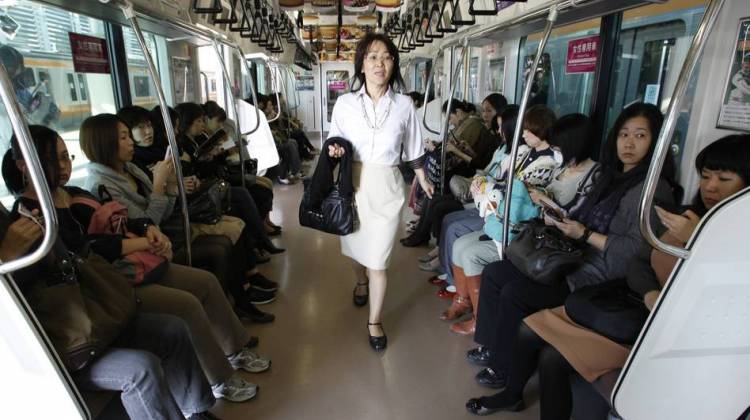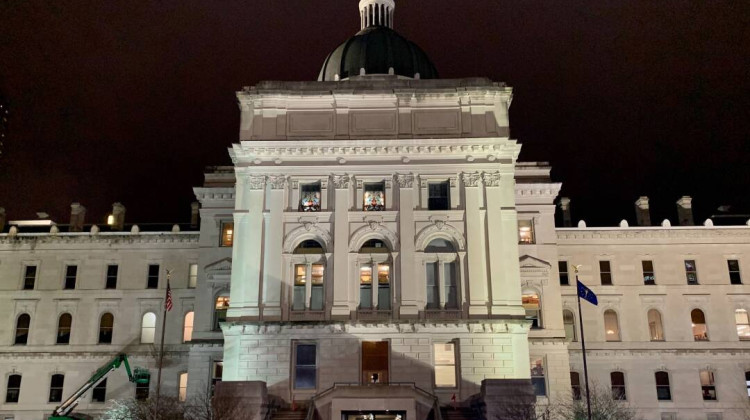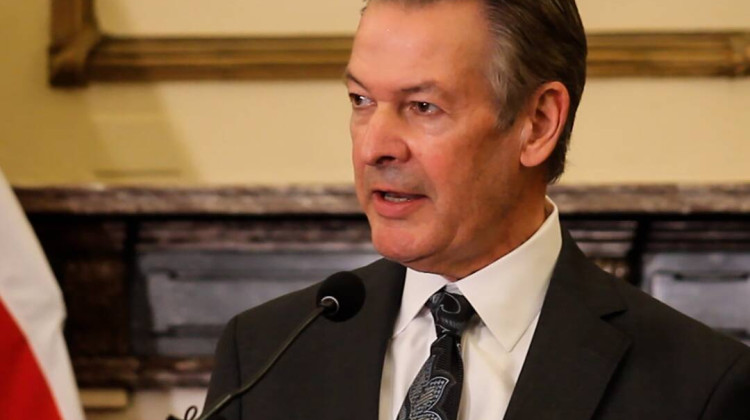A state law aimed at peeping Toms does not apply to someone who snaps "upskirt photos," the Supreme Judicial Court of Massachusetts has ruled in a decision that's grabbing attention across the nation.
In case you're not familiar with what an upskirt photo is, here's how The Associated Press recaps the case at the center of the decision:
"The Supreme Judicial Court overruled a lower court that had upheld charges against Michael Robertson, who was arrested in August 2010 by transit police who set up a sting after getting reports that he was using his cellphone to take photos and video up female riders' skirts and dresses."
So why doesn't Massachusetts' peeping Toms law apply? You can read the court's ruling by going to this webpage. Click on Supreme Judicial Court "opinions" and it take you to a page with a link to "Commonwealth vs. Michael Robertson." (Our apologies for the link we included earlier that didn't work correctly.)
A key part of the court's decision brings to mind one of the most notable moments of the Clinton-Lewinsky saga — President Clinton's "it depends on what the meaning of the word 'is' is," testimony before a grand jury when he was asked about why he had told aides he wasn't having a sexual relationship with intern Monica Lewinsky.
In discussing Massachusetts' peeping Toms law, the court writes that the statute:
"Does not penalize the secret photographing of partial nudity, but of 'a person who is ... partially nude' (emphasis added). 'Is' denotes a state of a person's being, not a visual image of the person. ... In sum, we interpret the phrase, 'a person who is ... partially nude' in the same way that the defendant does, namely, to mean a person who is partially clothed but who has one or more of the private parts of body exposed in plain view at the time that the putative defendant secretly photographs her.
"A female passenger on a MBTA trolley who is wearing a skirt, dress, or the like covering these parts of her body is not a person who is 'partially nude,' no matter what is or is not underneath the skirt by way of underwear or other clothing."
The court also writes that "at the core of the Commonwealth's argument to the contrary is the proposition that a woman, and in particular a woman riding on a public trolley, has a reasonable expectation of privacy in not having a stranger secretly take photographs up her skirt. The proposition is eminently reasonable, but [the law] in its current form does not address it."
According to the AP:
"Massachusetts House Speaker Robert DeLeo [a Democrat] said lawmakers are working to find a way to clarify the law. 'The ruling of the Supreme Judicial Court is contrary to the spirit of the current law. The House will begin work on updating our statutes to conform with today's technology immediately,' DeLeo said in a written statement Wednesday. Senate President Therese Murray [also a Democrat] said she was 'stunned and disappointed' with the court ruling. She said the Senate will respond quickly."
Suffolk County (Mass.) District Attorney Daniel Conley issued a statement after the court ruling urging lawmakers to change the peeping Tom law. "Every person, male or female, has a right to privacy beneath his or her own clothing," Conley said. "If the the statute as written doesn't protect that privacy, then I'm urging the Legislature to act rapidly and adjust it so it does."
9(MDEwMDc1MzM3MDEzNDczOTA0MDc1MzViMQ001))
 DONATE
DONATE










 Support WFYI. We can't do it without you.
Support WFYI. We can't do it without you.